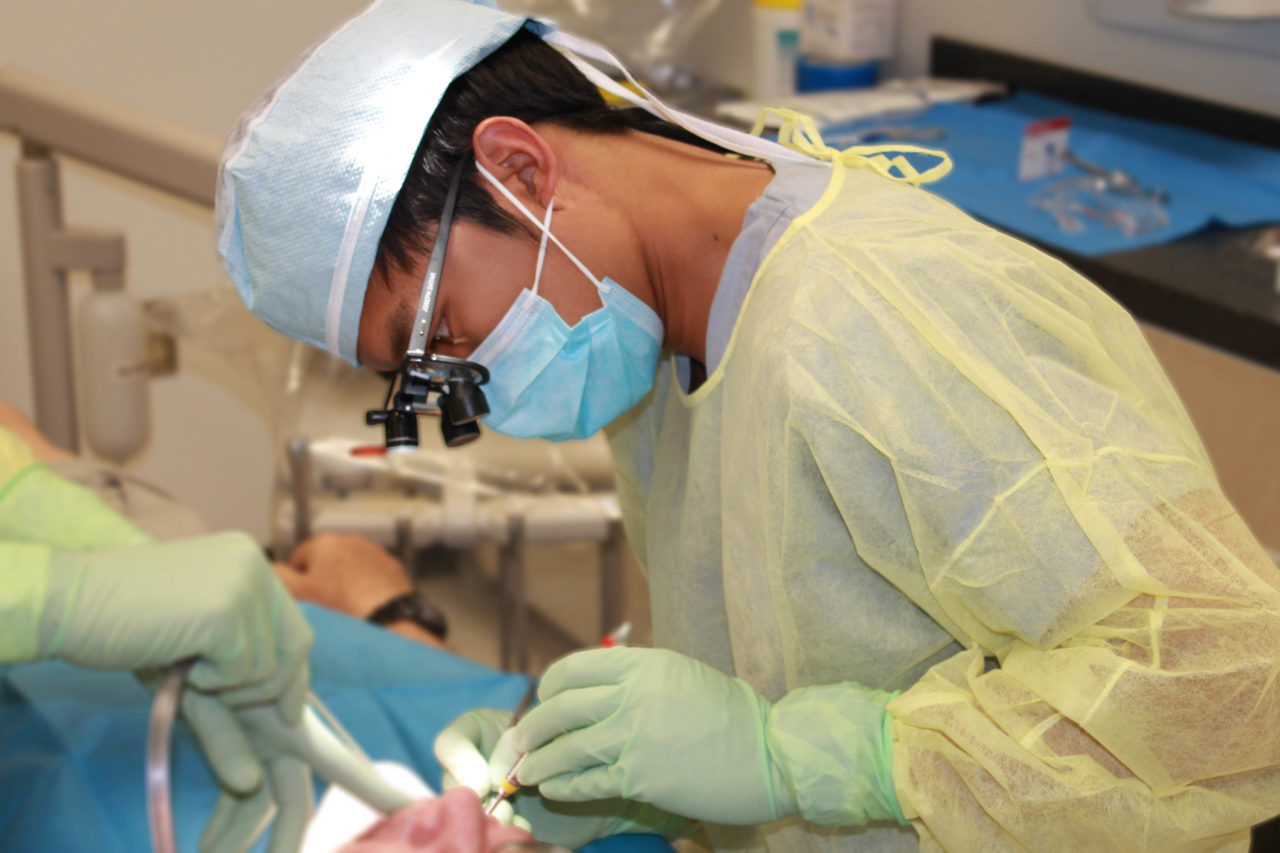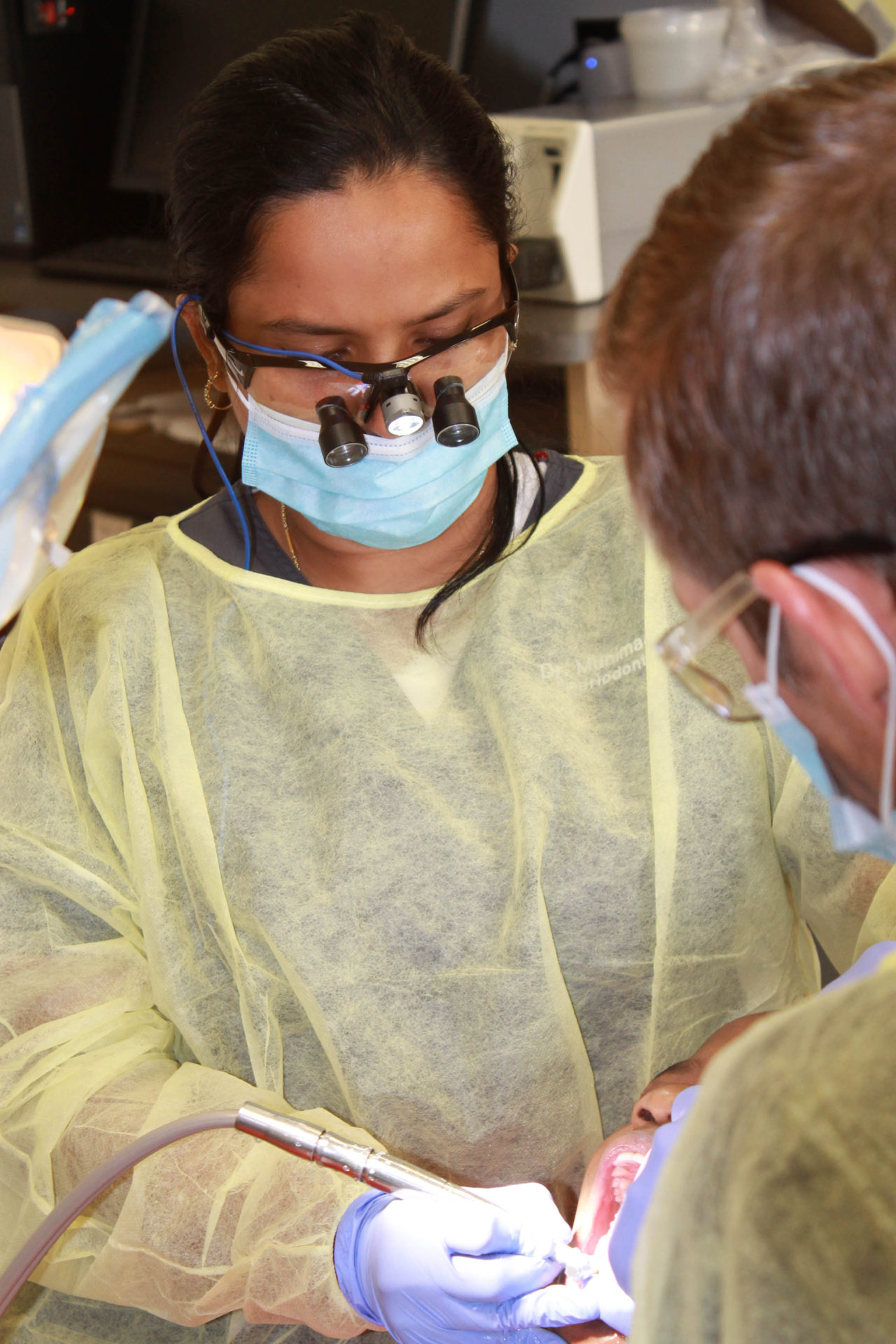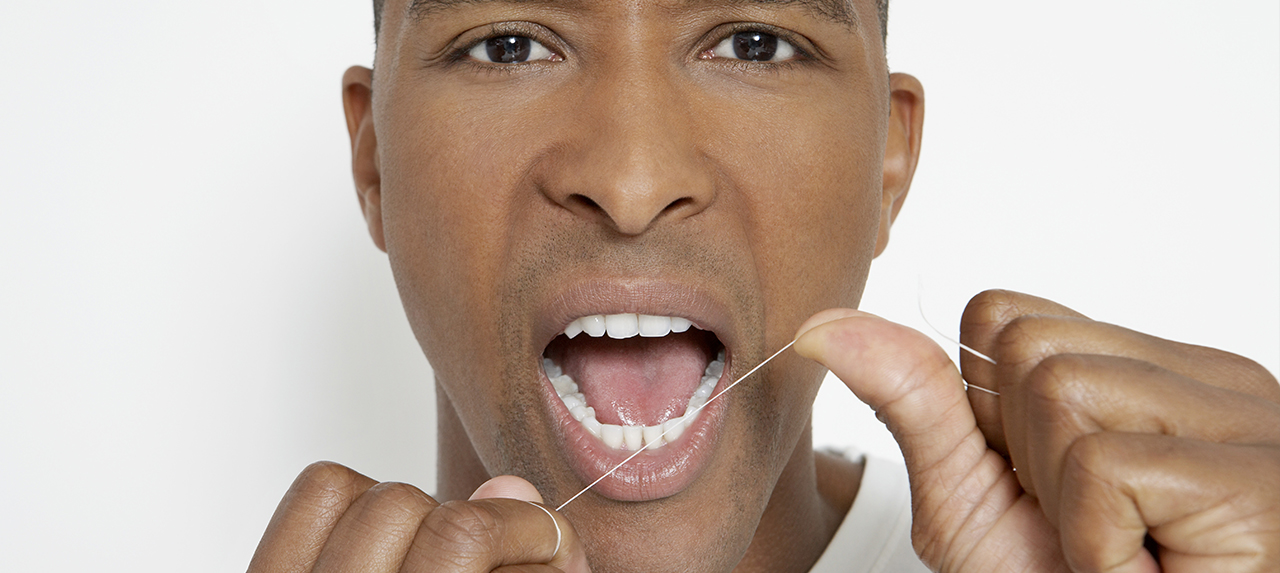Like many of us, James Roe hated going to the dentist. So, he didn’t. A hard worker with two jobs, he often felt exhausted. He was sure it was the many hours he worked.
In November 2008, he felt a lump in his neck. His physician said, given his health history, to monitor it and return in six to eight weeks. When driving home from his day job in Denver, he regularly needed to stop and nap in a parking lot. While at the doctor for a foot injury soon after, he asked for a CAT scan, MRI and ultrasound of his neck.
He received results, but had to wait three more weeks before he could get in to see a specialist to interpret the findings. Results showed a 4-centimeter tumor blocking most of his airway, preventing him from getting the oxygen he needed and causing his extreme fatigue. A biopsy revealed it was stage 4 cancer.
“My oral health was not good,” said James. “Before they started radiation, I had to have extensive dental work, cleaning, fillings and root canals. By skipping the dentist, I missed regular oral cancer screenings where they may have caught it at stage 2 or stage 3. I was lucky. I was big and strong and could withstand the treatment, but maybe it didn’t need to be that bad.”

A grad student provides care in the periodontics clinic at University of Colorado School of Dental Medicine. Photo courtesy of University of Colorado School of Dental Medicine
Oral Health Impacts Overall Health
Lonnie Johnson, DDS, senior associate dean of clinical operations and patient services at the University of Colorado School of Dental Medicine, notes two issues of concern between oral and systemic health: infection and inflammation. “There is a lot of microbial life in your mouth, and most oral disease, such as decay and periodontal disease, are caused by micro-organisms,” Johnson said. “They can circulate systemically, so your oral flora can become part of your gut and overall flora, circulate into your vascular system, and do damage in other places.”
He noted inflammation—when gums are red and swollen and may bleed when poked—has components that can circulate systemically. “The rest of your body can see results of oral inflammation as well.” When these two factors are present for years, part of chronic disease, there are associations to poor systemic health that can impact cardiovascular, respiratory, reproductive, endocrine and other systems.
They may not cause specific problems like cancer, but they can contribute to them. For those with other risk factors, like diabetes, periodontal disease appears to increase the incidence of complications like vascular disease. That association broadly indicates oral disease can contribute to the progression or severity of other diseases.

Dental problems can overlap with overall health issues. Periodontal disease appears to increase the incidence of complications like vascular disease. Photo courtesy of University of Colorado School of Dental Medicine
A dental exam can reveal problems with your tonsils, obstructive sleep apnea, or signs of developing mouth or throat cancer. Skip the exam and you may miss catching something earlier, when it’s easier to treat.
Lani McBeth, a dental hygienist with Dr. Christopher Morris in Littleton, says their practice starts with a medical history and patient interview to identify areas of risk. She shared how, in 2002, U.S. Surgeon General David Satcher issued a report that promoted oral health as a component of overall health.
McBeth stressed she works every day to educate patients about the link between oral and systemic health. That can be particularly challenging given the typical lack of communication between medical and dental professionals, and how we tend to treat dental health and our body’s health as two different entities.

“There is a lot of microbial life in your mouth, and most oral disease, such as decay and periodontal disease, are caused by micro-organisms. They can circulate systemically, so your oral flora can become part of your gut and overall flora, circulate into your vascular system, and do damage in other places.”
—Lonnie Johnson, DDS, Senior associate dean of clinical operations and patient services University of Colorado School of Dental Medicine

“Despite falling rates of tobacco use and improved approaches to diagnosis and treatment, oral cancer is on the rise. A huge concern are those caused by the human papillomavirus, or HPV-16. The virus is transmitted sexually via skin-to-skin or mucosal contact to men and women.”
—Susan Cotten, Registered dental hygienist and regional coordinator The Oral Cancer Foundation
She also finds it troubling that there is no option to obtain dental care like Medicare provides healthcare, despite research from United Healthcare and others that show there are savings when medical and dental care are integrated and complementary. “The U.S. spends $3.5 trillion per year on healthcare,” she said. “Every second, $111,000 is spent. If we don’t get a handle on that, and change how we approach healthcare, it will keep increasing.”
McBeth’s practice uses oral DNA testing to get a clear picture of what’s going on in a patient’s mouth. “There are 11 bacteria predominant in the mouth we knew are linked to periodontal diseases and other systemic diseases, including diabetes, heart disease, pancreatic cancer and early onset colon cancer,” McBeth said.
Oral Health and Cancer
Today, James regularly presents to groups on the importance of oral health and the hazards of oral cancer. He accompanies Susan Cotten, a registered dental hygienist and a regional coordinator for The Oral Cancer Foundation.
“Oral health and oral cancer and oropharyngeal (throat) cancer are important topics at this time,” Cotten said. “Historically the cause of these has typically been tobacco use of all kinds and chronic alcohol use. Today, despite falling rates of tobacco use, oral cancer is on the rise. A huge concern are those caused by the human papillomavirus, or HPV-16. The virus is transmitted sexually via skin-to-skin or mucosal contact to men and women.”
Non-smoking white men get HPV-linked cancer most, Cotten shared. Exposure occurs in early sexual activity, typically in their teens, 20s and 30s, most commonly through oral sex. Experts also believe it may be transmitted through aggressive, deep, open-mouth kissing. While every cancer is horrible, oral cancer Is particularly troubling. ”You lose the ability to communicate, you can lose all your teeth, all or part of your tongue,” she noted. “It impacts speech, eating, chewing, swallowing, kissing. There’s a high suicide rate for these patients, and high treatment-related morbidity, especially given the damage radiation does to the head and neck.”
Cotten notes that cancer from alcohol or tobacco use shows up as lesions. For HPV, early signs include a change in your voice, a hoarseness or sore throat that stays for weeks. Be aware of any painless, firm, fixated lump on your neck, persistent swollen lymph nodes, or a persistent cough that does not resolve. Be aware of difficulty swallowing or the sensation of food caught in your throat, of a persistent ear ache on one side or persistent jaw pain. Or, like James‘ experience, fatigue may be a sign.
James underwent six months of chemo, 48 radiation treatments, had a feeding tube for two years and lost 100 pounds during treatment and recovery. He’s now a nine-year survivor. While he still is not a fan of the dentist, he hopes you are and that you go regularly for checkups, cleanings and oral cancer checks, along with brushing twice a day and flossing daily. Make sure your oral health is as good as it can be to ensure your overall health is strong, too.
Brad Shannon is a Loveland-based freelance writer. To comment on this article, send an email to letters@nocostyle.com.






